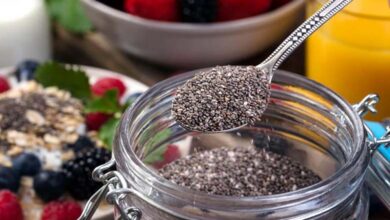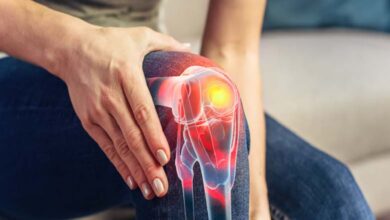Eating Slowly… A Simple Habit with Great Benefits

The pace at which we eat is a highly personal matter and varies from one person to another. However, what many may not realize is that the speed at which we eat can significantly affect our overall health.
Research suggests that eating quickly can lead to multiple health problems, such as weight gain and elevated blood sugar levels. It also plays a role in increasing the risk of obesity and type 2 diabetes.
When a person eats quickly, they may consume more calories than their body needs because the signals associated with fullness take time to reach the brain. This means that even after eating a large meal, one may still feel hungry, a problem faced by many who suffer from obesity.
Studies have shown that fast eating is associated with higher blood sugar levels, increasing the risk of diabetes.
Although other factors such as genetics and physical activity influence these risks, fast eating remains an important factor.
Why Should You Eat Slowly?
Eating slowly is a healthy habit that can help improve digestion, reduce overeating, and enhance the feeling of fullness.
-
A breakfast rich of protein to prevent overeating and obesity
-
Simple eating habits to adopt to have a slim body after 50
Additionally, this habit promotes a positive relationship with food and reduces digestive issues.
According to “Times of India”, here are some tips for eating slowly:
- Change Your Eating Environment: Sitting at the dining table, away from the TV or phone, helps focus on eating and enjoying the meal.
- Count Chews: Chewing a certain number of times before swallowing can help slow down the pace.
-
Why is it so hard to stop eating high calorie foods?
-
The Many Health Benefits of Eating Green Vegetables
- Drink Water Between Bites: Taking sips of water between bites helps hydrate the body and slow down the eating process.
- Eat with a Slow Eater: Trying to match the pace of your friends or family members who eat slowly can help you reduce your speed.
- Put Your Spoon Down Between Bites: Putting the spoon down after each bite may contribute to eating more slowly.












